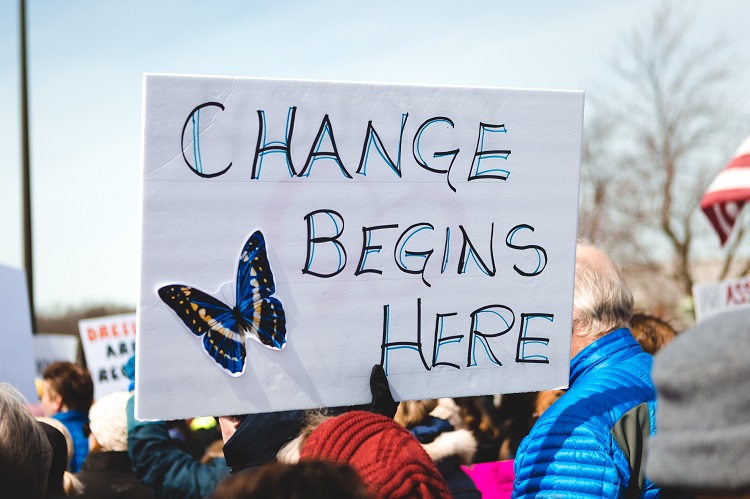
Income inequality is on the rise in the U.S. and many have
proposed raising the minimum wage to ease the gap. Fast-food workers are protesting nationwide and demanding higher pay. Some are even wondering
if we are on the cusp of a revolt.
How should we think about income inequality and the minimum wage from a Christian perspective? I can’t help but wonder what C.S. Lewis would say.
Lewis covers the topic of equality in two different addresses, “Membership”
and “On Equality.” Though he does not discuss minimum wage or income inequality directly, he makes several points that can help us understand how to think about equality through a Christian lens.
1. God did not create an egalitarian world.
I do not believe that God created an egalitarian world. I believe the authority of parent over child, husband over wife, learned over simple to have been as much a part of the original plan as the authority of man over beast. […] But since we have learned sin, we have found, as Lord Acton says, that “all power corrupts and absolute power corrupts absolutely.” (Membership)
2. Equality is not good for its own sake.
I do not think that equality is one of those things (like wisdom or happiness) which are good simply in themselves and for their own sakes. I think it is in the same class as medicine, which is good because we are ill, or clothes which are good because we are no longer innocent. (On Equality)
3. We were not made to live on equality.
But the function of equality is purely protective. It is medicine, not food. By treating human persons as if they were all the same kind of thing, we avoid innumerable evils. But it is not on this that we were made to live. (Membership)
4. Flat equality lacks spiritual sustenance.
But medicine is not good. There is no spiritual sustenance in flat equality. It is a dim recognition of this fact which makes much of our political propaganda sound so thin. We are trying to be enraptured by something which is merely the negative condition of the good life. […] The tempter always works on some real weakness in our own system of values — offers food to some need which we have starved. (On Equality)
5. When equality is treated as an ideal, it can breed envy and jealousy.
When equality is treated not as a medicine or a safety-gadget, but as an ideal, we begin to breed that stunted and envious sort of mind which hates all superiority. That mind is the special disease of democracy, as cruelty and servility are the special diseases of privileged societies. It will kill us all if it grows unchecked. (Membership)
Every intrusion of the spirit that says, “I’m as good as you” into our personal and spiritual life is to be resisted just as jealously as every intrusion of bureaucracy or privilege into our politics. (On Equality)
6. Equality cannot be reached on earth.
Yet even if they desire mere equality they cannot reach it. Where men are forbidden to honor a king they honor millionaires, athletes, or film-stars instead—even famous prostitutes or gangsters. For spiritual nature, like bodily nature, will be served—deny it food and it will gobble poison. (On Equality)
7. There is equality in God’s love, not in us.
God is no accepter of persons; His love for us is not measured by our social rank or our intellectual talents. […] If there is equality, it is in His love, not in us. (Membership)
While I’m not sure what C.S. Lewis would say about raising the minimum wage, his wisdom brings more clarity to the issue of income inequality.
From a Christian perspective, we should agree that the widening income gap is not a good thing. We should feel uneasy when we read headlines about rising income inequality, whether we think the government should do something about it or not. The pain of inequality is a result of the fall.
Lewis makes it clear that some forms of political equality, though not good in and of themselves, act as a sort of “medicine” to ease the pain of inequality. But perhaps we should ask ourselves “Is raising the minimum wage the
right medicine? Is it the most dignifying option?”
Maybe a more effective and more dignifying medicine for income inequality is an
opportunity society. In a study by the Institute for Faith, Work & Economics,
Dr. Anne Bradley writes:
We assert that income inequality is a natural part of the human condition. We are created uniquely and that means that there is no universal biblical standard for income equality. The question that must be addressed biblically and through public policy is the relative prosperity of the poorest among us and their ability to gain income through the pursuit of their gifts. To that end, we need an opportunity society which embraces our uniqueness, unleashes our creativity and potential and serves the common good. Markets have empirically demonstrated that they are better than any other system at lifting the poor out of destitution. (emphasis mine)
An opportunity society is the most dignifying and effective medicine to America’s growing income inequality problem, not a minimum wage.
Fabricating an egalitarian society by endlessly raising the minimum wage runs contrary to the way God created us because it buries our uniqueness. But an opportunity society unleashes our uniqueness and creativity, enabling both businesses and individuals to flourish.
]]> 


